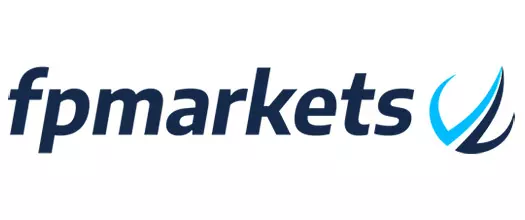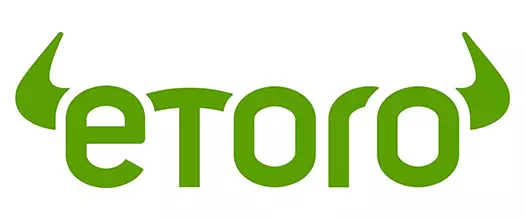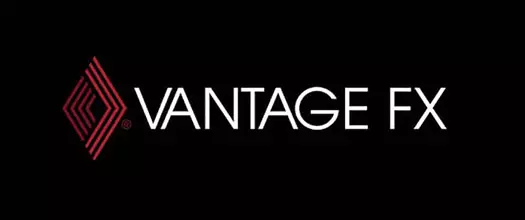- Jump to:
- Main Features of the Best ASIC Forex Brokers
- ASIC
- ASIC’s Responsibilities
- Guidelines ASIC Brokers Need to Comply with
- Customer Protection
- ASIC Requirements for Professional Trading
With forex being one of the biggest financial markets in the world, it is important that it is properly regulated, ensuring fair and safe trading conditions for all participants in forex trades. One of the authorities classified as tier-1 forex regulators is the Australian Securities and Investments Commission (ASIC). It authorizes the operations of brokers who wish to cater to Australian traders, ensuring financial service providers follow strict guidelines for seamless trading.
 Fusion Markets74-89% of retail's CFD accounts lose money
Fusion Markets74-89% of retail's CFD accounts lose money FP Markets73.85% of retail investor accounts lose money
FP Markets73.85% of retail investor accounts lose money Global Prime74-89% of retail CFD accounts lose money
Global Prime74-89% of retail CFD accounts lose money Pepperstone75.5% of retail investor accounts lose money
Pepperstone75.5% of retail investor accounts lose money XM Group72.82% of retail investor accounts lose money
XM Group72.82% of retail investor accounts lose money IG70% of retail client accounts lose money when trading CFDs with this investment provider.
IG70% of retail client accounts lose money when trading CFDs with this investment provider. eToro51% of retail investor accounts lose money
eToro51% of retail investor accounts lose money Eightcap81.96% of retail investor accounts lose money when trading CFDs with this provider.
Eightcap81.96% of retail investor accounts lose money when trading CFDs with this provider. Admirals73% of retail investor accounts lose money
Admirals73% of retail investor accounts lose money Vantage FX
Vantage FX
Our team has thoroughly evaluated all brokers listed below using TradingPedia’s exclusive methodology.
Main Features of the Best ASIC Forex Brokers
- Brand
- Trading platforms
- Minimum deposit
- Regulations
- Trading instruments
- Spreads
- Leverage for Forex CFDs
- Leverage for Crypto CFDs
- Leverage for Indices CFDs
- Deposit methods
- Withdrawal Methods
- Commission per Lot
- Contact details
Australian Securities and Investments Commission
The Australian Securities and Investments Commission (ASIC) regulates the country’s financial markets and the participants in these sectors. It started its operation back in 1991 as the Australian Securities Commission (ASC), effectively taking over the functions of the National Companies and Securities Commission (NCSC) and the Corporate Affairs offices of the states and territories. In 1998, the organization changed its name to ASIC to better reflect its new responsibilities.
It is the Australian Securities and Investments Commission Act of 2001 that describes the role, functions, and powers of this independent Commonwealth Government body.
The Commission, which is responsible for the management and administration of ASIC’s operations, is composed of a Chairperson and several members. As the main regulator of the financial markets in Australia, ASIC also monitors companies and professionals that deal with superannuation, investments, credits, deposits, and other financial services, making sure they operate in accordance with the National Consumer Credit Protection Act of 2009.
Regulating forex brokers operating in Australia also falls under the remit of ASIC, ensuring that licensed financial service providers offer fair trading conditions to clients. The organization issues licenses to companies that wish to provide financial services to Australians, with an official register displaying all service providers that have been licensed.
Based on the strictness of regulations imposed on licensed entities, ASIC ranks as a tier-1 forex regulator, ensuring they are fully compliant with the operational guidelines. Even after granting a license to a forex broker or a different type of financial service provider, ASIC is responsible for the ongoing monitoring of their operations. Inflicting penalties as well as revocations of licenses are also included in the responsibilities of the financial regulator.
When it comes to the regulation of forex activities, ASIC is also strict about providing additional protection tools to traders, with a clear distinction drawn between retail and professional traders. Those who are inexperienced and cannot afford to trade bigger volumes should have access to several customer protection tools as well as risk-assessment functionalities. As ASIC is strict about licensed brokers following said measures, a license from the Australian regulator indicates the high quality of the provided financial services and a safe and fair environment for everyone participating in the trading market.
ASIC’s Responsibilities
According to the ASIC Act of 2001, the official financial market regulator in Australia is required to monitor the performance of the country’s financial system and maintain its integrity and proper operations. The organization must enforce the respective regulatory framework and provide efficient financial market regulation. Any information provided to ASIC must be processed and stored in an efficient and timely manner. Whenever there is relevant information about a company or other financial services provider, ASIC is required to make that information available to the public as soon as possible.
According to ASIC, the responsibilities that fall under its remit include:
- Registering financial services providers operating in Australia
- Keeping registers available to the public
- Issuing licenses to companies providing financial services or credit products in Australia
- Taking proper measures to prevent the provision of defective products
- Introducing legislative framework to maintain the integrity of the financial market
- Granting relief from imposed legislation
- Conducting investigation of suspected breaches
- Issuing notices about any infringement of the law
- Inflicting penalties on financial service providers who have breached ASIC regulations
- Prosecuting offenders
- Enforcing bans on individual activities
The financial regulator has been vested with the above responsibilities and powers to safeguard consumers from misconduct and harms ensuing from trading activity.
Guidelines ASIC Brokers Need to Comply With
With ASIC being one of the strictest financial regulators on a global scale, forex brokers who wish to operate in Australia are required to meet a list of requirements in order to qualify for an ASIC license. Below, you can see the full list of steps required to apply for an AFSL – Australian Financial Services Licence.
- Company Legal Registration – License applicants must first ensure they have registered their company as a legal Australian entity.
- Authorized Capital – AFSL applicants must own at least 10% of their revenue or a minimum of AU$1 million in the form of net tangible assets (NTA). A minimum of 50% of a company’s NTA must be held in cash or cash equivalent.
- Qualification of Management Personnel – Key employees and managers in the company are required to prove their competence through a proper qualification and experience in financial service management.
- Tools for Risk Management and Internal Control – License applicants must implement effective systems for risk management and internal control. Key policies of the company must include management of components like conflict of interest, client funds, and complaints.
- Detailed Business Plan – During the license application process, applicants must provide a detailed business plan that provides information on the financial services the company intends to provide, a risk management plan, strategies for development, and the company’s governance model.
- Complaints and Consumer Rights – Applicants must provide an effective model for handling customer complaints and ensuring all consumer rights are respected
- License Application and Annual Fees – As the financial regulator suggests, the best way to apply for an AFSL license is through its eLicensing system, which customizes the application for each applicant. Brokers willing to operate in Australia must pay a license fee upon application as well as an annual fee for maintaining the active status of the license once it is granted. To be able to operate in Australia, forex brokers licensed by ASIC are required to abide by the regulator’s rules and meet the following criteria:
- Impose Mandatory Leverage Limits – Retail traders cannot be offered leverage higher than 1:30 on major currency pairs and 1:20 on minor crosses. Higher leverage can be accessed only by professional Australian traders who must meet certain criteria to qualify for professional trading.
- Guaranteed Margin Closeout – If margin levels are reduced to 50% of the required margin, ASIC brokers must close out the positions of their clients. This measure is introduced to minimize losses.
- Negative Balance Protection – Retail clients must be guaranteed that their losses cannot exceed the deposited amount in their accounts.
- Best Execution Policies and Fair Prices – ASIC-regulated brokers must implement the best policies for order executions, ensuring fair prices and easy market access.
Customer Protection
Forex brokers that seek ASIC’s stamp of approval are required to ensure fair and safe trading conditions, with the provision of additional customer protection tools also included in the requirements that brokers must meet in order to operate in Australia.
As mentioned earlier, a negative balance protection must be provided to retail Australian traders. That step requires brokers to ensure that traders’ losses cannot exceed the amount they have deposited in their accounts. That way, trading with leverage cannot lead to sharp losses that cause a negative balance, which may also lead to debts. It should be noted that this measure is typically offered only to retail traders as professionals agree on trading with a higher risk that may lead to significant losses.
ASIC Requirements for Professional Trading
As mentioned earlier, ASIC has introduced a clear differentiation between retail and professional traders. Due to the high risk of trading leveraged assets, the regulator has introduced mandatory customer protections that may help traders manage risk levels and minimize potential losses. However, restrictions like leverage cap and margin callouts may not be suitable for traders seeking higher profit resulting from leverage.
While ASIC-regulated brokers are required to impose a mandatory leverage cap of 1:30 on major forex pairs and 1:20 on minor pairs, they can offer higher leverage ratios to professional traders. In order to qualify for professional trading conditions, Aussies must meet several requirements. Below, we will provide the standard conditions that apply to professional trading with an ASIC-regulated broker:
- Sufficient Balance: Professional trading requires a larger trading volume and traders who apply for professional accounts with ASIC brokers must provide proof of substantial trading amounts. For this purpose, traders must gain ownership over net assets of at least AU$2.5 million or annual gross income of $250,000 for the last two years, with these types of statements being verified with a certificate issued from a qualified accountant in the previous six months.
- Substantial Trading Volumes: Traders applying for professional accounts may be asked to provide a trading statement that shows at least 20 large-volume trades made per quarter and a notional volume of AU$1,000,000 per quarter, generated in any four quarters in the last two years.
- Relevant Experience: Professional traders who currently work or have working experience of at least one year in a relevant financial sector may also qualify for professional accounts with ASIC brokers. A certain type of evidence must be provided to verify the trader’s experience with forex and CFD trading.
Brokers have specific requirements for granting professional trading status to their customers, with most of them clearly specifying the criteria and the application process. Normally, experienced traders should waive protections such as negative balance protection, lack of product disclosure statements, and exclusion from financial compensation schemes. Simultaneously, Professional trading account holders will benefit from improved margin rates, trading rewards, and priority customer service.













